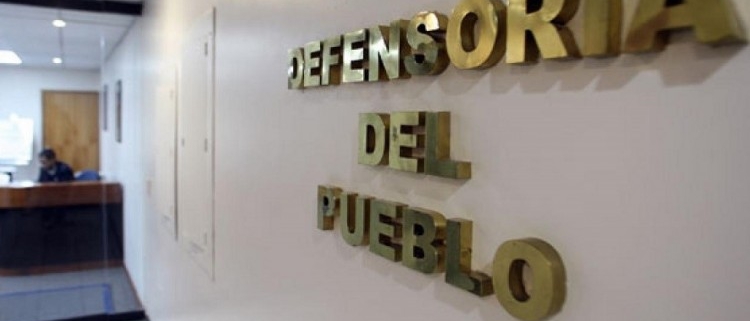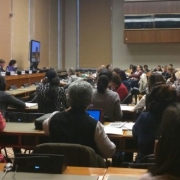Claim for the designation of the Ombudsman: citizen participation is very important
“Below, we offer a google translate version of the original article in Spanish. This translation may not be accurate but serves as a general presentation of the article. For more accurate information, please switch to the Spanish version of the website. In addition, feel free to directly contact in English the person mentioned at the bottom of this article with regards to this topic”
In the absence of answers, the claim was brought to the Inter-American Commission on Human Rights and to the Human Rights Committee of the United Nations, and both agencies urged the Argentine State to appoint the Ombudsman promptly. It should be noted that it is a key institution for the defense of human rights.
In accordance with the principles of the inter-American human rights system, States undertake to adopt legislative or other measures that are necessary to give effect to the rights and freedoms recognized in the American Convention on Human Rights. Among the measures mentioned, there are those tending to effect the establishment and regular operation of the Ombudsman’s Office.
The Ombudsman has basically two functions: 1) Defense and protection of the rights of the people before acts or omissions of the public administration; and 2) Control of the exercise of public administrative functions. However, this definition of the Defender may become limited since it does not contemplate its more procedural and human dimension: the idea and aspiration to create an entity capable of being receptive to the needs of the population. The Ombudsman’s Office plays a fundamental role not only in the protection of human rights and control of the exercise of public functions, but also as a key institution in direct communication between the State and individuals.
During the month of August 2017, 55 civil society organizations again called for the end of this situation and the designation of the Ombudsman. The complaint also included a proposal for the appointment that included both legal and constitutional requirements, as well as suggestions for the selection process. It was requested that the necessary measures be adopted so that the Bicameral Ombudsman’s Commission immediately begins the appointment procedure, which ensures 1) transparency and citizen participation in the process and 2) the suitability of the candidates.
The selection process of the Defender must follow rigorous criteria that guarantee the moral suitability and technical suitability. The moral suitability in this case not only refers to the absence of disciplinary offenses or conduct contrary to public ethics; but it refers to the need to prove a true commitment to human rights. The technical suitability, on the other hand, has to do essentially with the knowledge about the problems of Human Rights and the means to remedy them.
Another point to highlight in how the designation of the Ombudsman should be carried out, has to do with the independence of criteria. The CN in its article 86 emphasizes the autonomous character of the figure of the Defender and the independence of criteria. This refers to the non-partisanship of the figure and the absence of economic ties or interest that may interfere with the activities of the Ombudsman.
These selection criteria must be accompanied by a transparent and participatory procedure governed by publicity and openness in all stages of the process. The presentation made by the civil society detailed the proposal for the implementation of a selection process that should include: 1) Proposal of the candidates, 2) Publication of background, 3) Observations, challenges and questions, 4) Written responses from the candidates , 5) Public hearing before the bicameral commission, 6) Observations, 7) Decision of the bicameral commission.
This organ since 2009 lacks real leadership and since then it is operating under interim mandates because Congress has not yet agreed on the appointment of a director. Since 2015, undersecretary-general Juan José Böckel has been in charge of this unit, a man who answers the former intervener of that entity, the deputy governor of Jujuy, Carlos Haquim. Currently, the Ombudsman’s Office has been immersed in corruption cases after anonymous reports of irregularities in the organization.
According to reports, on Wednesday, November 8, the Bicameral Commission of the Ombudsman would sign the proposal of three candidates to the Ombudsman, with a view to having the Chambers designate it before the end of the year. This has been done without convoking the civil society and if this agreement were reached without the participation of the citizens in the formation of the shortlist, it will affect the proper institutional functioning of the Ombudsman, once their new holder is designated. .
The importance of the prompt designation of the Ombudsman is that it is one of the agencies in charge of the horizontal control of the State (called Horizontal Accountability). It is about the control exercised by the same institutions over the acts and / or omissions emanating from the State. In this sense, it is essential that the mechanisms that guarantee horizontal accountability work correctly. We join the claim of civil society for the prompt appointment of the Ombudsman.
More information
– Without citizen participation, the Ombudsman will not be for the People
– 55 organizations ask Congress for the designation of the Ombudsman
– Contributions for the regulation of the nomination process of the nation’s Ombudsman
Contact







